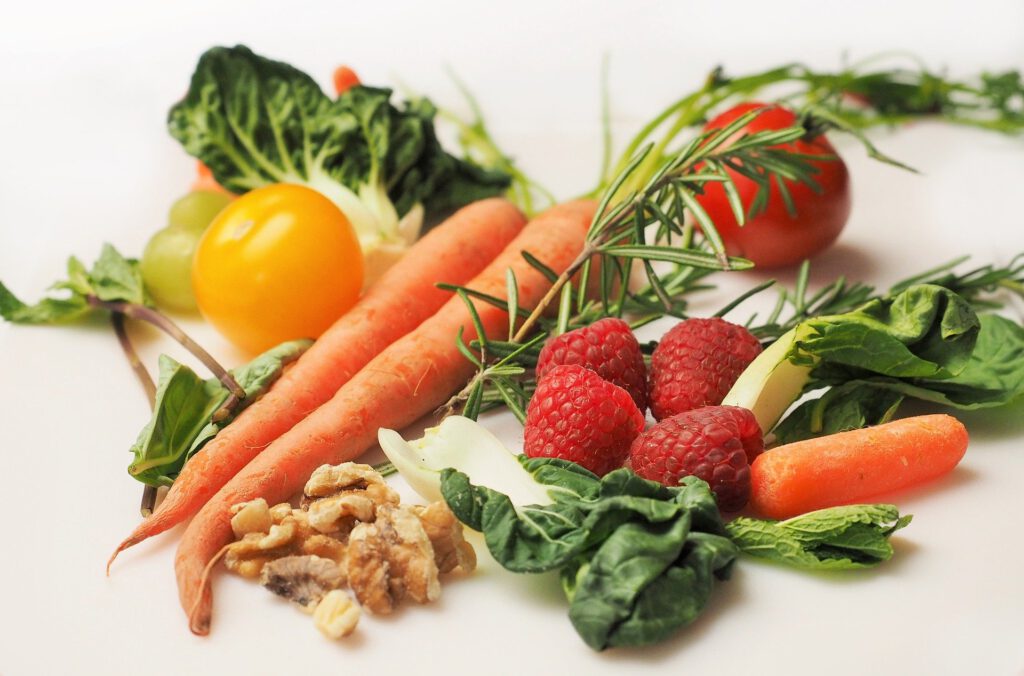What is raw food?
CONTENTS
- Raw food – what is this diet and what is it all about?
- Products allowed on a raw food diet
- Raw food – side effects
A raw food diet is a diet based on eliminating highly processed foods, especially those subjected to heat treatment, from your daily diet. This means that the foods you eat are raw—which is why the diet is commonly referred to as a "raw food diet" or "vegan." A raw food diet is often associated with veganism, as it is based on the avoidance of meat and animal products—although not in all forms.
Raw food – what is this diet and what is it all about?
A raw food diet is inspired by the way humans ate before the invention of fire—that is, it is based almost exclusively on plant-based products and is eaten raw. This is intended to preserve as many of the naturally occurring minerals, enzymes, and vitamins in food as possible.
Raw foodists avoid heat-processing foods to protect the naturally occurring proteins in food, which are considered difficult to digest, difficult to utilize, and even harmful when heated. The diet is also intended to protect against potentially dangerous byproducts of frying, such as nitrosamines. However, some variations of the diet allow foods heated to temperatures no higher than 42°C.
Products allowed on a raw food diet
The raw food diet is based on a strictly defined group of products that are consumed fresh or after minimal processing. Therefore, natural and unprocessed foods are most important when compiling the menu, such as:
- ripe vegetables and fruit (also sun-dried),
- Nuts, seeds and kernels (raw or soaked in water)
- algae ,
- fresh sprouts,
- some types of mushrooms,
- unrefined (cold-pressed) oils,
- Honey (mainly unpasteurized).
Among its proponents, there are several variations of raw foodism. The most popular and radical version of the diet is the vegan raw food diet, which excludes all animal products from the menu—but eliminates all:
- highly processed foods,
- UHT dairy,
- pasteurized, canned products or various types of preserving jars (in pickles and marinades),
- Pulses (except varieties that can be eaten raw),
- Cereals and derived products such as flour, bread, pasta, groats and rice.
The best options for a raw food diet are therefore salads, cold-pressed juices, cold drinks (e.g. gazpacho), puddings, and pastes and desserts made from soaked and crushed nuts or seeds.
Raw food – side effects
Like any improperly implemented diet, raw food can have side effects. Among the diets, there is a less popular one: the vegetarian raw food diet, which allows the consumption of some animal products, such as raw milk or raw eggs. However, this practice is considered controversial because it significantly increases the risk of salmonella infection, which can occur on eggs, for example.
Because it's a very restrictive diet, raw food only produces good results with short-term use. A good solution is a cyclical diet, such as in spring, which helps cleanse the body of toxins and can improve digestion. Meals based on raw food guidelines should be incorporated into the standard diet, but long-term use of a varied menu will always have consequences for health and the proper functioning of the body.
THE PUBLISHER'S CHOICE
Dried plums 1 kg BIOGO
- €7,01
- €7,01
- Unit price
- / per
Dried White Mulberries 500 g ORGANIC
- €5,84
- €5,84
- Unit price
- / per
Almonds 1 kg BIOGO
- €11,69
- €11,69
- Unit price
- / per
Cranberries sweetened with apple juice organic 1 kg BIOGO
- €16,37
- €16,37
- Unit price
- / per
Dried dates 1 kg BIOGO
- €4,21
- €4,21
- Unit price
- / per
Unpeeled buckwheat groats 1 kg BIOGO
- €2,81
- €2,81
- Unit price
- / per
Walnuts 800 g BIOGO
- €8,65
- €8,65
- Unit price
- / per
Peeled sunflower seeds 1 kg BIOGO
- €3,04
- €3,04
- Unit price
- / per
PULLED ORGANIC SUNFLOWER SEEDS 1 KG BIOGO
- €4,44
- €4,44
- Unit price
- / per












































































































































